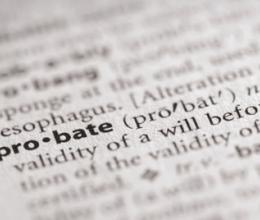It is surprising how many misconceptions exist and how many people pass away thinking they have left their Estate in good order when the opposite of what they intended occurs. Examples of some common misconceptions are:
- I do not need a Will as everything will pass to my wife. Whilst this may be the case if there are no descendants of the deceased, it would not be the case where there are descendants. The law states that the first £270,000 of the Estate goes to the spouse and half the residue, while the other half of the residue goes to descendants of the deceased in a prescribed order. This can cause difficulty where the majority of the Estate is represented by the family home. Further challenges can exist where there are second marriages with children arising from the first.
- If I leave a person out of my Will they will inherit nothing. Again, whilst this may be the case, The Inheritance (Provision for Family and Dependents) Act 1975 gives courts limited powers to change the effect of a Will and can include someone obvious such as the spouse or children, or less obviously, persons used to receiving regular support from the deceased during their lifetime. Losing a claim under this Act can be costly both for the Estate and beneficiaries.
- Living together gives an automatic right to part of the Estate. There is no automatic right although a claim can be made as previously mentioned as a dependent. This however is likely to involve lawyers and be slower and more expensive to the Estate. The outcome may not be what the deceased would have wished for and could be avoided had they taken the opportunity to write a Will.
- Please consider how a residential property is held. It may be held as tenants in common in which case the property will pass in accordance with either the Will or the rules of intestacy or as joint tenants where the surviving owner would automatically inherit the property. Please bear in mind that where a joint tenancy is involved and no marriage or civil partnership exists, this will be a chargeable death transfer and with properties increasing in value could result in a nasty surprise tax bill to the Estate. It is very unlikely that the residential nil rate band worth up to £175,000 would be available potentially increasing the tax bill.
It is extremely important to plan what will happen to your Estate so that your wishes can be properly followed and tax minimised. It is important that you consider Estate planning as it is far better to plan ahead and get it right than to retrospectively try and change things.
If you would like to speak to Peter Tuffin to discuss this further then please contact him at our Brighton and Hove office or contact your local UHY office who will be pleased to meet with you and assist with your Estate planning.



